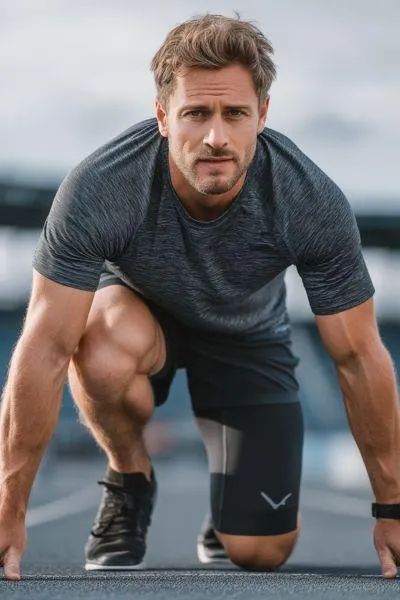
Focus: Sharpening Mental Precision in Sport

1. The Power of Focus in Performance
Focus is the ability to direct your attention intentionally toward the task at hand and sustain it over time, especially in distracting or high-pressure situations. It is the mental spotlight that determines what gets processed and what gets ignored. In sport, focus is not just helpful—it’s essential. As the saying goes, “Your focus is your power. Protect it.”
2. Common Distractions for Athletes
- Scoreboard or results during competition
- Crowd noise, family or coach reactions
- Past mistakes or future outcomes
- Negative self-talk or doubts
- Environmental cues (weather, opponent behavior)
- Internal pressure to win or perform
3. Outcome vs. Process Focus
Many athletes get distracted by outcomes they cannot control—winning, records, and placement. Process focus means zeroing in on controllables: technique, rhythm, posture, or pace. Champions stay locked on the how, not just the what.
Example: A sprinter focuses on an explosive first 30 m and staying relaxed—not on the clock or who’s ahead.
4. How to Know When You’ve Lost Focus

- Thinking about mistakes or outcomes mid-performance
- Comparing yourself to others during the task
- Not remembering the last 10–20 seconds of performance
- Sudden body tension, shallow breathing, or erratic decisions
- Feeling like your “mind is elsewhere” or drifting
5. Training Tools to Strengthen Focus
1. Focus Cues
Why it works:Anchors attention to a keyword or image.
Example: A swimmer might say 'streamline' at every wall.
Exercise: Choose one cue word (e.g., 'rhythm', 'snap', 'drive') to repeat during key movements.
2. Reset Breath
Why it works: Clears emotional clutter and resets concentration.
Example: After a mistake, one slow inhale/exhale to calm and refocus.
Exercise: Practice 2 'reset breaths' after any drill error in training.
3. Centering Technique
Why it works: Combines breath, posture, and cue word to enter performance state.
Exercise: Inhale, drop shoulders, say the cue word internally ('lock in'), exhale and execute.
4. Focus Drills in Practice
Why it works: Trains attentional endurance.
Example: Run two sets of a skill—first with distractions (music, yelling), then repeat silently with full focus.
Exercise: Record which reps felt more precise and why.
5. Post-Session Focus Score
Why it works: Builds metacognition (awareness of awareness).
Exercise: After each training, rate your focus (0–10) and note what helped or hindered it.

6. Athlete Examples of Unshakeable Focus
• Michael Jordan: Known for his total focus during free throws—used visualisation and crowd filtering.
• Eliud Kipchoge: Marathon legend who focuses only on 'one kilometer at a time'—not time or competitors.
• Tom Brady: Uses cue words like 'next play' to reset instantly after a failed pass.
• Usain Bolt: Despite media attention, locked in on pre-race rituals, deep breathing, and posture.
7. Daily Routine to Build Focus Stamina
- Morning: Visualise your key focus cue for that day.
- During Training: Apply the cue word and reset breath after every distraction.
- Evening: Write a 1-line summary of what helped your focus most today.
8. References and Supporting Research
Moran, A.P. (2012). Sport and Exercise Psychology: A Critical Introduction.
Weinberg, R. & Gould, D. (2019). Foundations of Sport and Exercise Psychology.
Jackson, S.A., & Csikszentmihalyi, M. (1999). Flow in Sports: The keys to optimal experiences and performances.
APA Division 47: Performance Psychology Resources (2021).
Taylor, J. (2020). Train Your Mind for Athletic Success.
